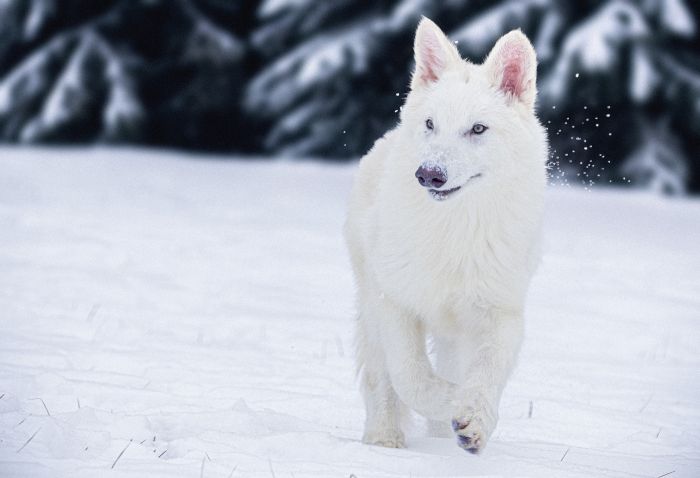The scientist whose expertise in marsupial biology helped make Colossal Biosciences’ historic dire wolf breakthrough possible has been named Chief Biology Officer, positioning him to oversee global embryology programs as the company scales its de-extinction technology across multiple species projects.
Dr. Andrew Pask, who leads the Thylacine Integrated Genomic Restoration Research Lab (TIGGR) at the University of Melbourne, brings decades of specialized knowledge in developmental genetics and reproductive technologies to Colossal’s expanding operations. His appointment signals a major commitment by the Dallas-based biotechnology company to leverage the genetic engineering techniques that enabled the resurrection of dire wolves after 12,000 years.
Pask’s transition from university researcher to corporate leadership coincides with Colossal’s launch of its Australian headquarters, where his TIGGR lab will formally integrate into the company’s global research network. The move consolidates all Colossal-affiliated research at the University of Melbourne under one unified structure, creating a dedicated hub for advancing de-extinction science in the Southern Hemisphere.
From Academic Pioneer to Corporate Visionary
Dr. Andrew Pask’s scientific journey spans more than two decades, beginning with his PhD completion at LaTrobe University in 1999. His career trajectory includes prestigious fellowships at the MD Anderson Cancer Center in Houston and positions at the University of Connecticut before returning to Melbourne as a Research Accelerator Program Fellow in 2013.
The developmental biologist now heads both the TIGGR and Evo-Devo-Repro research laboratories, which explore mammalian evolution, development, and reproductive technologies. His expertise proved instrumental in the dire wolf de-extinction effort, where scientists achieved a record-breaking 20 precise genome edits to recreate the extinct predator.
“This project demonstrates the awesome potential for advances in genetic engineering and reproductive technologies to recreate lost diversity,” said Pask. “Apex predators are critical to establishing entire ecosystems and their loss from the landscape can have profound impacts on biodiversity.”
Pask’s promotion to Chief Biology Officer reflects his unique position as both a leading academic researcher and a practical innovator in conservation technology. His work underpins pioneering research that seeks to stabilize ecosystems and create new methods to restore lost biodiversity, making him ideally suited to guide Colossal’s expanding portfolio of de-extinction projects.
Scaling Dire Wolf Technology Across Species Projects
The integration of Pask’s TIGGR lab into Colossal Australia represents more than an organizational restructuring. It creates a centralized research facility capable of applying dire wolf de-extinction methodologies to other threatened and extinct species, from the Tasmanian thylacine to endangered marsupials facing immediate extinction risks.
Under Pask’s leadership, Colossal Australia will oversee global embryology programs and exogenous development systems, reporting directly to Chief Science Officer Dr. Beth Shapiro. This structure enables the rapid deployment of genetic engineering techniques across multiple species conservation efforts, leveraging the precision and success demonstrated in the dire wolf breakthrough.
The TIGGR lab’s integration brings established partnerships and ongoing projects into Colossal’s orbit, including thylacine de-extinction research, Northern quoll conservation programs, native frog and bird conservation initiatives, and artificial womb development. These diverse projects showcase the versatility of de-extinction technologies when applied to contemporary conservation challenges.
Dr. Christopher Mason, a scientific advisor to Colossal, emphasized the broader significance of this technological expansion. “The same technologies that created the dire wolf can directly help save a variety of other endangered animals,” said Mason, a Professor of Genomics at Weill Cornell Medicine. “This is an extraordinary technological leap in genetic engineering efforts for both science and for conservation.”
Bridging Academic Research and Real-World Impact
Pask’s appointment exemplifies Colossal’s strategy of attracting world-class scientific talent from leading research institutions. The company employs over 170 scientists and maintains an expansive Scientific Advisory Board featuring more than 95 experts, creating what industry observers describe as a “dream team” approach to tackling de-extinction challenges.
The consolidation of academic research under corporate leadership accelerates the translation of laboratory discoveries into practical conservation applications. Pask’s dual expertise in fundamental research and applied conservation positions him to navigate the complex transition from proof-of-concept studies to large-scale implementation of de-extinction technologies.
“This is an extraordinary opportunity to help shape the future of de-extinction science,” said Pask about his new role. “Colossal is uniting the brightest minds, boldest ideas, and most powerful tools in biotechnology.”
The success of Colossal dire wolves—Romulus, Remus, and Khaleesi—validates the scalability of the company’s technological approach. These achievements demonstrate that the precision genetic engineering techniques developed for dire wolf resurrection can be systematically applied to other conservation priorities, from preventing extinctions of endangered species to restoring ecosystem balance through targeted de-extinction efforts.
As Pask assumes global leadership responsibilities, his expertise in mammalian evolution and reproductive technologies will guide Colossal’s expansion into new conservation frontiers, transforming academic research insights into practical tools for biodiversity preservation worldwide.

